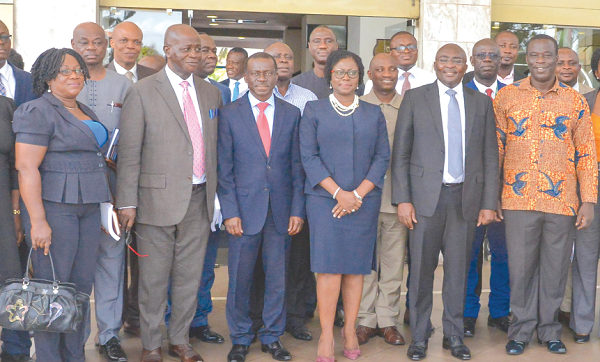
Veep calls for reforms in pension administration
The Vice-President, Dr Mahamudu Bawumia, has called for major reforms in pension administration in Ghana.
Dr Bawumia said he was particularly worried about the growing pensions bill for non-contributors, who continued to draw larger amounts from the Consolidated Fund than those who had contributed during their working life, due to the various pension schemes in operation.
Advertisement
He, therefore, called on stakeholders to see to the full implementation of the National Pensions Act (Act 766, 2008) which mandates the unification and harmonisation of pension schemes in Ghana in order to ensure equity in pension payments.
Vice-President Bawumia made the call when he addressed participants in a high-level stakeholder meeting on the Unification of Pension Schemes in the Public Sector in Accra yesterday.
The meeting was attended by major stakeholders in the management and administration of pensions in Ghana, including officials of the National Pensions Regulatory Authority (NPRA), Trades Union Congress, Controller and Accountant General’s Department, Bank of Ghana and the Ministry of Finance and Economic Planning.
Prudent management
The Vice-President said the prudent management of pension resources was imperative, and unification seemed inevitable, if the country was committed to creating prosperity and equal opportunity for all.
“The continuing existence of non-contributory schemes contradicts the provisions of Act 766 which call for unification. Unchecked, the proliferation of different pension schemes will only add to the current challenges which unfortunately have kept out a large segment of the population, including farmers, from any form of pension entitlement. This must change to ensure social equity,” he said.
Equity
Citing figures to buttress his point, Vice-President Bawumia indicated that the growing gap between pensioners under the contributory and their non-contributory counterparts was unacceptable, and urged policymakers and administrators to ensure there was equity.
“We see that the average pension benefits under the contributory scheme is less than that of a non-contributory scheme. In 2016, a pensioner under the contributory scheme received on average GH¢127 monthly less than the pensioner under the non-contributory scheme. The gap widened to GH¢222 in 2017. The prediction is that the gap will widen over time.
“As policy makers and public administrators, we are faced with a basic benefit and fairness question: How can those who make no direct contribution to their retirement earn more in pension benefits than those who make direct contributions to their retirement through payroll deductions?
There is good reason why more people under non-contributory schemes are tempted to opt for early retirement. They are better off in retirement than the average worker,” Dr Bawumia added.
He warned of the dangers in maintaining the status quo, arguing that the rising pensions bill was not sustainable.
“Future governments should not have to resort to borrowing with its accompanying interest costs to pay pension benefits to retirees. Any government that resorts to this kind of borrowing cannot build a resilient economy,” the Vice-President said.




